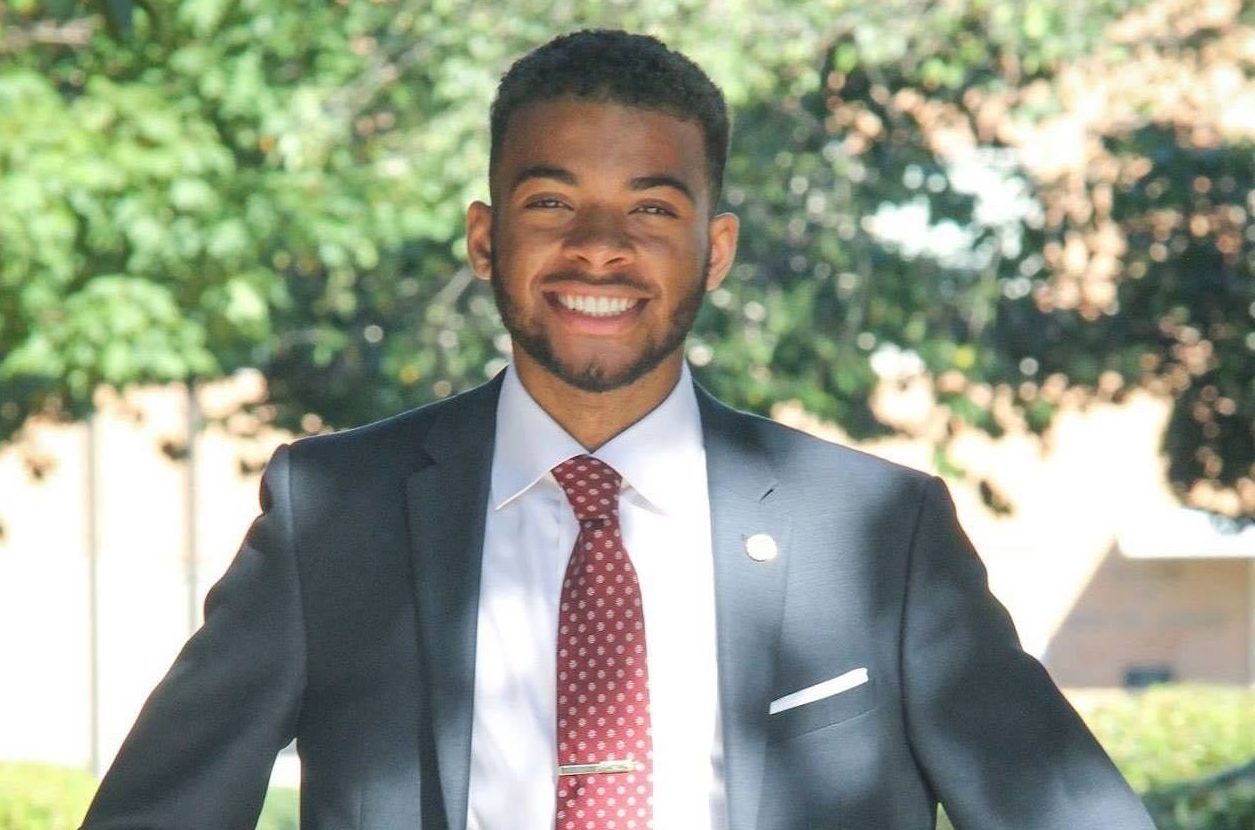on
By Branden Hunter
Historically Black Colleges and Universities (HBCU) have some of the more distinguished alumni bases in the nation. Don’t at me.
Rev. Dr. Martin Luther King Jr., Spike Lee, and Samuel L. Jackson are all graduates of Morehouse. Oprah Winfrey is a 1973 alumna of Tennessee State. Debbie Allen, Thurgood Marshall, and Stokley Carmichael each attended Howard. Jerry Rice (Mississippi Valley), Doug Williams (Grambling), Walter Payton (Jackson State), and Ben Wallace (Virginia Union) all excelled in sports at HBCUs and in the professional ranks. And the list goes on.
Detroit native Kyle McMurtry is a junior at Howard University and hopes to be among his institution’s famous alumni someday. In the mean-time, the 20-year-old is apprising the younger generation on the importance of HBCUs through his newly published book titled, “Henry’s Going to an HBCU.”
“Ultimately, I wanted to inspire younger students to attend HBCUs because of the positive benefits of it,” said McMurtry, who has never written a book before. “I also want them to recognize the reality that it is pretty tough to attend an HBCU, but I don’t want those hindering factors to stop black kids from going to black schools. If you start young and instill the desire in them, they’ll make it happen when it’s time to apply to college.”
In his 25-page book, Henry gets accepted into his first school of choice, Howard. His younger sister, Hope, was just as excited as he was, but had no idea what an HBCU was. Henry proceeded to explain to Hope what an HBCU was and its importance to the African-American community over the last 150 years. HBCUs have produced doctors, lawyers, professional athletes, actors, politicians, and Civil Rights activists, among other professions. HBCUs have always represented a vital component of American higher education, especially since many schools barred their doors to African-Americans.
“HBCU culture, faculty, and students help cultivate your desires, make you more accountable for your goals, and push you to be the best you can be a lot more than any other school will,” said McMurtry, who is studying political science and finance at Howard. “I think that’s common among all HBCUs, not just the one I attend. HBCUs have produced some great black people and it’s not debatable.”

McMurtry graduated from Renaissance High School in Detroit in 2016. His top two college choices were Howard and the University of Michigan. He has family who are alumni of both schools, but ultimately chose Howard because he thought it would fit him best as a black student. In McMurtry’s book, Henry felt the exact same way.
Having parents who both graduated from Howard University and visiting the campus in Washington D.C., McMurtry new all about the school but had to research and apply all on his own. Renaissance did not help him much, but he was persistent on attending an HBCU and made it happen himself.
Kiana Montgomery, a graduate of Florida Agricultural and Mechanical (FAMU), experienced the same situation coming out of Warren Cousino High School in 2008. Being a student at a predominately white school, in a predominately white city, information on HBCUs were not readily available. Luckily, a visit to Tallahassee during her junior year of high school allowed her to experience what an HBCU was all about. Now she is a senior account coordinator for a public relations firm in Florida.
“My only other choice was Wayne State because they have an excellent public relations and communications program and it was across the country,” said Montgomery. “My high school had a lot of information on local schools — Wayne State, Michigan State, and Michigan — but unfortunately, they didn’t offer resources on HBCU’s. But to be fair, being from up north, it’s not as accessible as it is potential students in the south.”
Also in his book, McMurtry gave facts about HBCUs, including naming all 102 schools, from Cheyney University of Pennsylvania which was founded in 1837, to the Morehouse School of Medicine in Atlanta which was founded in 1975. Over half of all African-American professionals graduated from an HBCU and they graduated about 33 percent of all black graduates with bachelor’s degrees.

Ja’Breah Norris is looking to add to that number. She is a sophomore at Grambling State University, studying business and computer information systems and business management. Just like Hope, she had family who attended an HBCU, and wanted to go somewhere that felt like home. That place was Grambling State. Norris is enjoying her time at Grambling and is involved with the men’s basketball team. She said she will encourage her family and friends to attend an HBCU as well, just as Henry did.
“My little brother and cousin are both sophomores in high school and I will push them to go to an HBCU,” said Norris. “A lot of people go to PWIs (private white institutions) and we don’t tour HBCUs enough. And a lot of our high schools were majority black, if not all black. I feel like HBCUs are necessary for our education.”
Henry’s Going to an HBCU is currently on Amazon eBooks for $3.99 or on kylemcmurtry.com. Physical copies of the book will be available before Christmas for about $10.
Join our email list to stay connected.







You must be logged in to post a comment Login